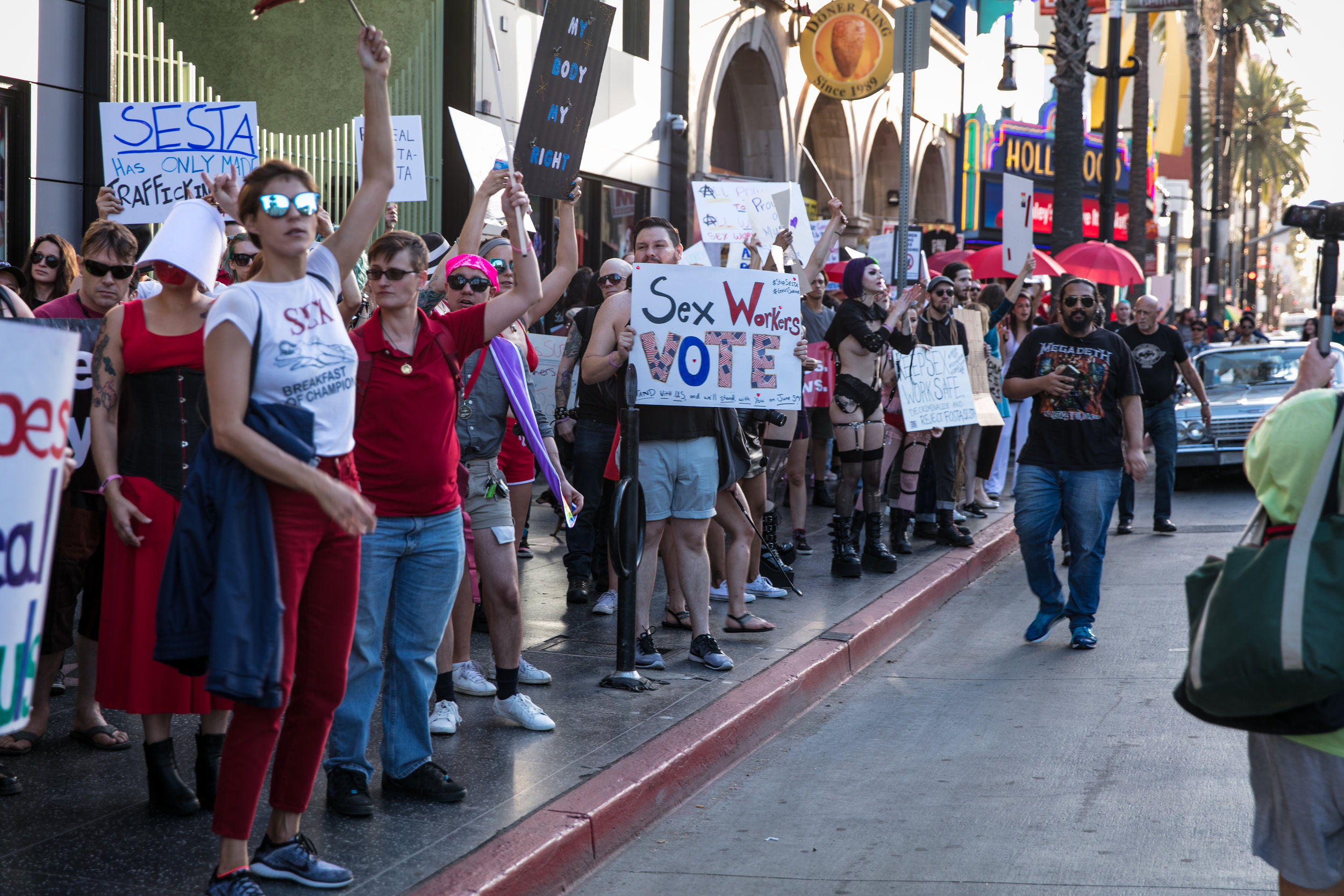LOS ANGELES, CA - Following unprecedented involvement during the International Whores’ Day actions that took place June 1-2 in numerous cities across the nation, a summit of sex workers, survivors, and advocates met late last month to discuss the next steps for the sex workers rights movement in the United States. The group published an important piece of educational information for sex workers and allies titled, National Sex Worker Anti-Criminalization Principles, now up at the APAC website.
“Sex workers must no longer be treated as though we are not an integral part of society,” said Siouxsie Q. James, Secretary of The Adult Performer Advocacy Committee. “We stand and fight in community with adjacent anti-criminalization movements that seek to rebuild our country and dismantle the ways in which we have policed and persecuted marginalized communities since our nation’s founding.”
The National Sex Worker Anti-Criminalization Principles outline a working template for the movement, advocating for people impacted by labor issues, social stigma, and criminalization. The movement condemns any attempts at restricting sex worker autonomy and self-determination.
“This document positions sex workers in a way that takes back our narratives, insisting that our voices are prioritized when it comes to policies that affect our lives,” said Cris Sardina, Director of the Desiree Alliance. Sardina runs a sex worker rights convention that chose to cancel its 2019 conference programming in light of the new laws that further criminalize the industry.
While the war on the sex industry has been raging for centuries in the United States, the catalyst for this latest wave of lobbying, litigation, media advocacy, and direct actions is a new anti-sex trafficking bill, commonly known as SESTA/FOSTA, which was signed into law in late March. Sex workers and their allies, along with trafficking survivors and advocates, have since been organizing and mobilizing to speak out about the law’s unintended, but ultimately harmful, consequences.
These communities, who are often pitted against one another in both politics and media, came together to respond to the disappearance of dozens of online resources that sex workers had once used to put valuable space, time, and scrutiny between themselves and their clients. Now unable to use the internet freely to advertise and screen, those who seek to exploit sex working individuals have more power than ever, forcing many workers to rely more heavily on potentially exploitative third parties, or turn to riskier options, including street-based sex work, where they are far more likely to experience violence from both predators and police.
“We hope that this serves as a starting point for lawmakers, journalists, advocates, and academics to better understand our community’s needs,” added Kristin DiAngelo, a sex trafficking survivor, sex worker, and the Executive Director of the Sacramento chapter of the Sex Worker Outreach Project.
Ceyenne Dorsohow founder of the Gays and Lesbians Living In a Transgender Society (G.L.I.T.S.) stated, “This was an intense drawing of emotions into a document that sets the precedent of what are now asking for and expecting of other leaders, society, and government.”
The National Sex Worker Anti-Criminalization Principles list four major points, including a general statement of purpose, recommendations for sex workers and allies, and rights of sex workers. The piece uses the 1983 Denver Principles as a template, which unequivocally declared and demanded the human rights of people living with HIV/AIDS, this document serves as a manifesto for how the sex working community will take back the narrative of exploitation and criminalization and reframe their struggle as a battle for basic human rights.
To view a link to the full text, visit this link: http://www.apac-usa.com/single-post/2018/07/03/Sex-Worker-Rights-Summit-Produces-National-Anti-Criminalization-Principles
ABOUT SIOUXSIE Q
Adult industry writer, performer, and advocate, Siouxsie Q, has been creating media about sex work since 2012 when she launched her popular podcast, The Whorecast. Since then she has written extensively for publications such as Rolling Stone and Wired.com, and her first book Truth, Justice and the American Whore was published in May of 2016 to rave reviews. Pivoting to politics, she served as the Director of Policy and Industry Relations for The Free Speech Coalition from 2016-2017 leading the historic and winning battle against California’s Proposition 60 and further ensuring victory for adult industry workers in regulatory battles with Cal/Osha. She continues to write, teach, podcast, and perform regularly. In 2018, she was elected to the Adult Performer Advocacy Committee Board of Directors. She was nominated for the 2018 AVN Award for Best All-Girl Group Sex Scene for her performance in Adam and Eve's polyamory themed movie, Luck of the Draw.
Follow her at @apacsocial or @whorenexxxtdoor @WhoreCast on Twitter.



